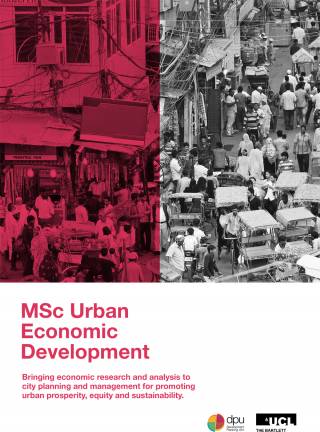The Urban Economic Development MSc equips students with skills to understand theories behind urban policy challenges and create productive, sustainable and inclusive urban economies in practice.
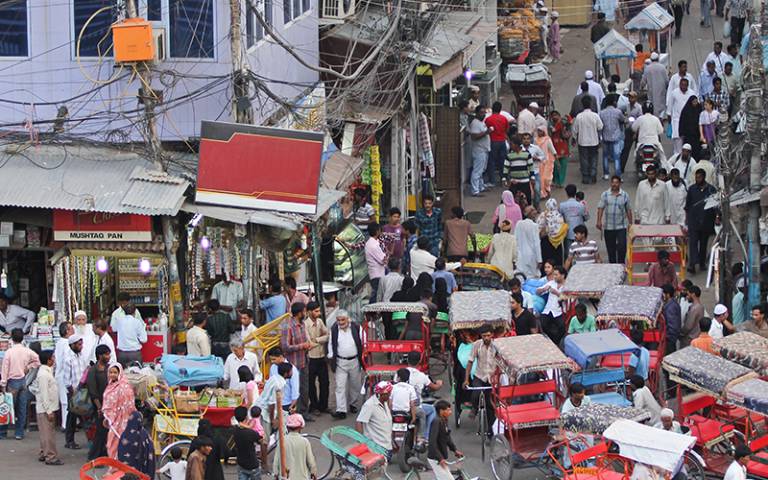
Course highlights
The Urban Economic Development MSc offers our students the critical thinking skills and tools to design state of the art research, develop creative approaches to engaging stakeholders in inclusive partnerships that advance prosperous and sustainable urban and regional development.
Our teaching tools include:
- A mixture of teaching formats. We engage our students through lectures, seminars, workshops, and practice engagements based on case studies of urban development across the world, in higher, lower, and middle income countries.
- Renowned contributions to academic thinking and urban economic analysis. Our teaching team of academics from The Bartlett Development Planning Unit and associate teaching fellows have a wealth of experience with critical assessment of microeconomic and macroeconomic data, and the analysis of urban economic activity and the application of economic criteria to urban development
- 'Live' client projects with leading public and private development organisations worldwide. Our students engage peers and tutors and partner organisations to co-create innovative approaches to addressing urban challenges in London and in an overseas practice engagement.
On this page
- Course overview
- Who should apply?
- Course structure
- Practice engagements
- Careers and employability
- Teaching staff
- More information
Course overview
On the Urban Economic Development MSc, we train students to become development practitioners and better understand the dynamics of the city economy and encourage them to develop their own theoretically-sound perspectives on how to address urban challenges.
Studying with us, you can expect to focus on a range of contemporary themes in urban economic development, including key debates around:
- The role of governments in enhancing the performance of city economies;
- Different approaches taken across countries and the policy trade-offs they entail;
- The challenges and opportunities of globalisation, liberalisation, decentralisation, digital technologies;
- The implications of climate change for inclusive and sustainable regional economies;
- The impact of the global economy on patterns of urbanisation;
- The causes and consequences of inequality within cities; and
- Pathways towards ecological and circular economies.
Our course is strongly interdisciplinary, attracting participants from a range of academic backgrounds, including economics, architecture, and urban studies, among others. We are brought together by sharing a common belief in social equity and environmental sustainability. Our successful applicants have an average of three to five years of professional experience in fields such as international development and local government administration.
Who should apply?
Our students come from a diverse range of countries, speak different languages and have a mixture of experiences and skills. However, they all have the following in common:
- They have worked or intend to work professionally in the field of policy-making, implementation and consultancy, focusing on the city economy and economic development in urban areas.
- They want to acquire a critical understanding of the city economy and the capability to develop and formulate well-grounded sectoral and city development strategies.
- They are interested in exploring interdisciplinary approaches to achieving prosperity, equity and sustainability at the same time.
- They are keen to learn from development experiences elsewhere and feel comfortable in engaging in theoretical and policy debates.
If this sounds like you, we strongly encourage you to apply.
Course structure
The Urban Economic Development MSc is structured so that:
- 75 per cent of the course (90 credits) is dedicated to the core subjects of economics in urban development and managing the city economy, providing our students with the theoretical and methodological components of the course.
- 25 per cent of the course (30 credits) is dedicated to optional modules from a range of modules offered by The Bartlett Development Planning Unit and from the wider university. Optional modules allow our students to examine different approaches and issues in urban development in accordance with their own particular interests.
The following diagram illustrates the structure of the Urban Economic Development MSc throughout terms one, two and three:

- Core modules
Managing the City Economy enables participants to develop a critical understanding of the key components and operating dynamics of the city economy, and the factors that underlie urban productivity.
Practice in Urban Economic Development exposes students to contrasting practices of urban economic development to enable them to gain a better understanding of the process of managing local economic development in an urban context.
Urbanisation and Development addresses the prospect for development in a context of international trade and investment, with the role of the state and effects of policies as key underlying factors.
An Introduction to Public Economics and Public Policy deals with identifying the most common market failures, the drivers of government failures and the interactions between economics and politics as constraints on the design of public policies.
Economic Policy Evaluation Tools introduces methods and tools used by urban economic development policy makers and practitioners to evaluate policy, both before and after the policies and projects have been introduced.
For a full description of core Urban and Economic Development MSc modules and optional modules offered by other courses at The Bartlett Development Planning Unit, please visit the UCL Module catalogue.
Please note that the course structure and list of modules given here is indicative. This information is published a long time in advance of enrolment and module content and availability are subject to change.
- Part-time students
A part-time qualification from the Urban Economic Development MSc is the perfect way to boost your skills and knowledge while developing your professional identity. To fit around your work and life commitments, our part-time students typically complete the course in two years, studying three core modules in year one, and subsequently complete two optional modules, the practice module and the dissertation in year two. For more information about studying part-time, please contact Programme Leaders Naji Makarem and Alessio Kolioulis via email.
All students who complete the Urban Economic Development MSc in accordance with the qualification criteria will receive a degree from a top-ranking university and have the opportunity to connect with our global network of alumni and partners.
- Teaching and assessment methods
Staff on the Urban Economic Development MSc deliver teaching through a mixture of lectures, seminars, workshops, case studies and practice engagements. Our students engage in learning through reading, essay writing, and individual and group project work. Throughout the course, our students are assessed on their learnings through coursework, examinations, and an inidividual dissertation report produced during the summer term on a topic of the student's choice.
Practice engagements
As part of the core practice module, 'Practice in Urban Economic Development', our students put into practice their understanding of managing economic development and the tools and techniques to advance propserous city economies to fieldwork research in UK and overseas contexts. This is known to our students as 'practice engagements'.
In our recent UK practice engagements, we have partnered with organisations such as the Greater London Authority, the Department for Levelling Up, Housing and Communities, and Enfield Council.
To situate students' practice in a global south context, our students work with partner organisations in overseas fieldwork. In our recent overseas practice engagements, we have worked in the Yucatan peninsula (Mexico), Tarapoto (Peru), and Mek'ele (Ethiopia). Visit our UED overseas practice engagement page to find out more about our overseas fieldwork and discover the students' research outputs.
Careers and employability
With our expertise and contribution to urban development and action planning, the Urban Economic Development MSc is widely recognised by national and international organisations, including UN agencies, the World Bank, bilateral aid organisations, and government aid programmes.
After graduating, our alumni pursue careers in organisations in the public, private and community sectors focusing on local and international development in the UK and in their home countries, and are also employed within government, inter-government and non-government organisations in the global south.
What our alumni say
Watch the video from 2018-19 Urban Economic Development MSc alumna Kavita Shah to hear about her career trajectory after graduating from the course:
More alumni profiles
2021-22 Urban Economic Development MSc alumna Natalina Banjarnahor
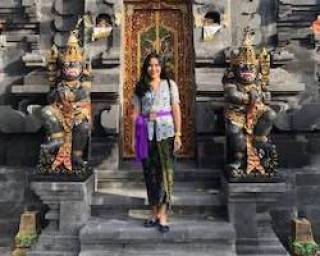
"Currently, I am working on analyzing and preparing the Integrated Tourism Master Plan (ITMP) of ten national priority destinations in Indonesia both funded by the national budget and a loan from the World Bank. With the knowledge and value of the importance of equitable growth in development I learned from DPU which addressing not only economic well-being but societal well-being as well, I will implement it in the ITMP to achieve sustainable and inclusive tourism development."
2019-20 Urban Economic Development MSc alumnus Antoine Kallab
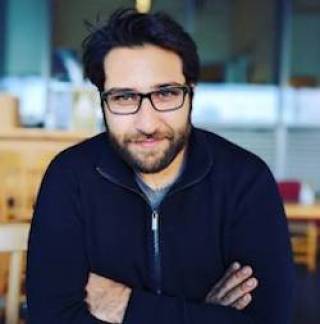
"My UED master's empowered me to move back to Lebanon after 5 years abroad, at a time when my country was going through a severe political and economic crisis. I joined the Beirut Urban Lab at the American University of Beirut (AUB) as a researcher and research coordinator, investigating the socioeconomic impact of the 2020 Beirut Port Explosion."
2020-21 Urban Economic Development MSc alumna Yaseemen Safie
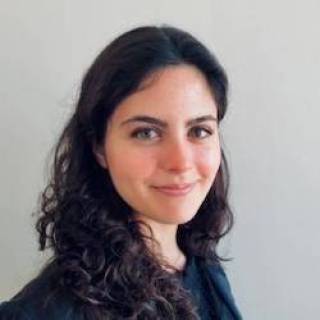
"Shortly after the course, I became a researcher for BOP Consulting, a UK-based consultancy specialising in culture and the creative industries. I work on projects involving economic impact analyses, evaluation of cultural programmes, and place-based cultural strategies in the UK and internationally. The UED programme not only equipped me with the theoretical knowledge and concepts needed to be able to navigate this field, but it enabled me with the experience to problem-solve, communicate clearly, and conduct research through an inclusive framework, to ensure it is not only rigorous but reflective and accountable of those it affects."
For more information about alumni of The Bartlett Development Planning Unit (DPU), visit the DPU Careers page.
Teaching staff
Teaching staff and associate teaching fellows on the Urban Economic Development MSc are renowned for their contribution to academic thinking and urban economic analysis in the context of city planning and urban management.
Learn more about the Urban Economic Development teaching staff:
- Programme Leaders
Dr Naji Makarem
View Naji Makarem's profile
Naji leads the Practice Module in Urban Economic Development. His research focuses on developing a just transition to inclusive, ecological and circular regional economies through community organisation, good governance, social entrepreneurship and enabling (old and new) technologies.Dr Alessio Koliulis
View Alessio Kolioulis' profile
Alessio teaches Urbanisation and Development and Economic Policy Evaluation Tools. His research interests fall within two themes: i) urbanisation and economic democracy; and ii) technological innovation and the creative industries.- Graduate Teaching Assistant
Dr Jing Zhang
Jing generally supports the staff team on teaching, admission and other administration for the programme operation. She also undertakes her PhD research in DPU now, focusing on the nexus of industrialization and urbanization in Africa, political economy of policy process and south-south cooperation.- Teaching staff
Prof. Le-Yin Zhang
View Le-Yin Zhang's profile
Le-Yin teaches the ‘Managing the City Economy’ module. Her research focuses on the role of the state in urban economic development and in addressing climate change.Dr Margarethe Theseira
Margarethe brings her experience of delivering urban economic development programmes for governments and cities across the world to her teaching of the London Project that forms the UK practice engagement. Margarethe is a member of the Mayor of London's infrastructure advisory panel and provided expert advice in the development of the London Industrial Strategy. She is also a Senior Director in Strategic Consulting at Jacobs, one of the world's leading solutions providers.Dr Alexandra Panman
View Alexandra Panman's profile
Alexandra teaches Introduction to Public Economics and Public Policy and Economic Policy Evaluation Tools. Her research focuses on land and housing, living standards in cities, and informal markets.Étienne von Bertrab
Étienne teaches the optional module Sustainable Infrastructure and Services in Development (DEVP0024) and his academic and activist work focuses on environmental justice in Latin America. He is researcher and tutor in the practice engagement on the Tren Maya project in Mexico.
 Close
Close


